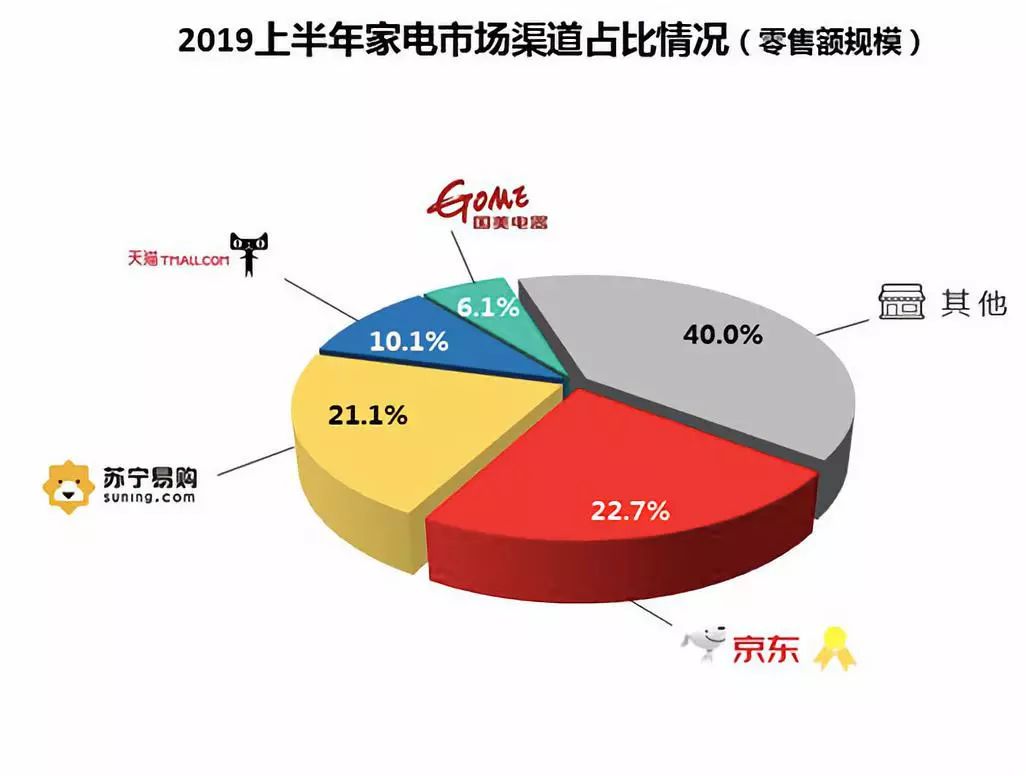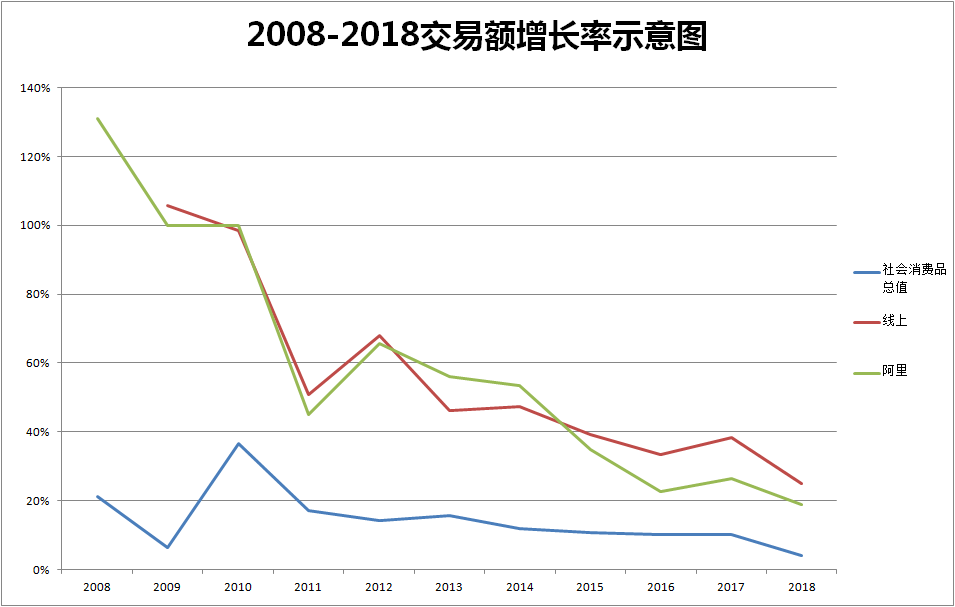Perhaps a bit counter-ear, but the truth is not scrubbing or soft-text
Editor’s note: This article comes from WeChat public number “Technology” (ID: kejishuo), author Laotie 007.
“Second one” is a topic that must be discussed every year, but this year’s topic begins around the “E-commerce Law.” Under Articles 22 and 35, everyone has a choice of “two choices”. More legal support, but if the law is the norm, combined with some facts and data, is the “two-choice” behavior really illegal?
Prerequisites for Sections 22 and 35 of the E-Commerce Act:Market Dominance
Articles 22 and 35 of the “Electronic Commerce Law” concerning “two choices” are:
Article 22: E-commerce operators have market dominance due to their technological advantages, the number of users, the ability to control related industries, and the dependence of other operators on the transactions of e-commerce operators. Do not abuse market dominance to exclude or restrict competition.
Article 35. Operators of e-commerce platforms may not use service agreements, trading rules, and techniques to unreasonably restrict the transactions of the operators within the platform, the transaction prices, and transactions with other operators. Or add unreasonable conditions, or charge unreasonable fees to operators in the platform.
In Article 22, the precondition for opposing “two elections” is clarified: market dominance. There is no such premise in Article 35. Some public opinion believes that this is a one-size-fit for all “restrictive agreements, rules and systems”. Is this the case?
We don’t think so:
First, if a company does not have a dominant market position, it is impossible to make suicidal restrictions. Without the premise of market size, if the restrictive means is used, the platform will undoubtedly push the merchants Competitors, assisting opponents;
Secondly, if the market is in full competition, the platform needs to settle the obligations of the merchants to maintain their own reputation and service quality. This is also the scope of contract autonomy for equal civil entities engaged in commercial activities, and public authorities generally It is not easy to interfere with it (Extracted from Dai Long’s “Research on the Application of the E-Commerce Law on Abuse of Dominant Status Regulations” by Associate Professor Dai Long of China University of Political Science and Law);
Third, although Article 35 does not have the premise of “prohibiting the abuse of dominant position”, in the book “Interpretation of Electronic Commerce Law” edited by the E-commerce Law Drafting Group, the title of Article 35 is clearly titled “Abuse of Dominant Position” “.
In addition, we are based on the Anti-Monopoly Law and some of the views in the Anti-Unfair Competition Law, regardless of Article 22 or Article 35, If the judgement of “two choices and ones” enters the legal category, we should start with the premise of “abuse of dominant position”. Let us look at the details.
Every year, eleven and 618, the “two-choice one” dispute is always between Tmall, Jingdong and Jianduo. The latter two accuse the former of abuse of dominant position and exclusivity. In combination with the previous article, we use the law as the criterion. Analyze whether Tmall has a “dominant position.”
We first determine the target of the target. Previously, when the market share was more than half of the monopoly position, the GMV shared by Tmall and Taobao was taken as a reference. It is considered that Ali is the main body and has a monopoly position.
But it is not the case. In the repeated “two choices” storm, all involved are Tmall. As an independent legal person, if you start from the law, you should start with the Tmall market share.
FY 2019 (Q1 in Q1019 in 2018), Tmall’s total GMV is 2.6 trillion. In 2018, the national online retail sales amounted to 9 trillion yuan, and Tmall accounted for 29%.
Obviously, it does not have the status of a market subject, but in a specific industry, its market share is lower than that of its competitors, such as China Electronics Industry Development Research Institute’s “China Household Appliances Market Report for the First Half of 2019”, Tmall The market share is lower than Jingdong and Suning, see the following picture

Excerpt from China Household Appliances Market Report for the First Half of 2019
In this year’s 618 “Galanz shelling Tmall” incident, we will not consider the authenticity of the event for the time being, but if the law is the norm, Tmall does not achieve the “predominant position” in this category, Galanz The appeal is difficult to give legal support. The paradox of sadness is also a wise move at the time.
We are so contrasted. Some people may express their incomprehension and even anger. They think that we are deliberately supporting the Tmall. We may wish to look at the “3Q War” of the year.
In the “3Q War”, 360 had submitted a suspected monopoly indictment to the Guangdong court, but the main reason for losing the case was:
-
Tencent believes that as a timely communication tool, email, Weibo, and even SMS can be used as substitutes for QQ. Even the overall market share should not be based on the domestic market, but should be placed in the international market. Share comparison, the final court supported Tencent’s statement;
-
In 2013, WeChat has emerged as a reasoned QQ may be replaced by WeChat because of the “WeChat threat QQ”.
All in all, although the QQ at that time was indeed in an absolute strong position in the IM tool, in the specific judgment details, the right to interpret the product with the substitutability of the product and the space ratio of the market share, QQ’s market positioning extended to a larger market space, and Tencent finally won the case.
If Tmall and a series of company disputes are placed in this dimension, it is difficult to say whether Tmall really has the premise of “abuse of dominant position”, but even if the scale of Tmall and Taobao are counted, 2019 In the fiscal year, its total GMV was 5.7 trillion, accounting for 63% of the nationwide retail online transactions in 2018, which seems to be dominant.
But we still don’t think so. The reason is: First, the definition of GMV includes paid and unpaid orders, while the statistics of online transactions are based on actual payment, and the proportion of 63% is magnified. Second, although the platform is hitting, in the actual judgment, it is still necessary to consider the market high problem caused by the brushing; thirdly, dynamic, Ali’s e-commerce growth rate is lower than the e-commerce industry, which is also independent competition. For the result of the enlargement, see the figure below
Organized from the National Bureau of Statistics and Ali Public Information
The market is in a dynamic competitive situation, so it is difficult to define Alibaba or Tmall with a “dominant position”.
The above arguments may be inconsistent with or even harsh, but if we only talk about the details and do not consider the intuitive feelings of the readers, this is indeed the case.
How to correctly treat the “two choices one” war of words
In the World Bank’s 2016 World Development Report, it is clear that the economic mode of operation of the Internet is conducive to the formation of a natural monopoly (in a certain market, it is best to provide products from one supplier).
If there is no competitive business environment, it will lead to a more concentrated market structure. In today’s series of practices such as big data killing and bundling, the above drawbacks are indeed beginning to emerge.
The above is certainly the main reason why public opinion calls for strengthening anti-monopoly on Internet companies, but it also ignores the dynamic characteristics of competition in the Internet industry. Even if platform operators have a high market share, they may not be completely excluded. Limit market competition.
Although the Internet industry seems to have entered the stage of oligarchy as the concentration increases, it is still full of opportunities and cases with small blogs. The big problem of only covering the sky.
We may wish to quote Kevin Kelly’s point of view in the 2012 talks with Ma Huateng:
The natural monopoly will not last a long time, it will soon be replaced, replaced by the next generation of products or the next generation of technology. The natural monopoly I am talking about is beneficial as long as it can benefit our customers and our users. Therefore, for the phenomenon of natural monopoly, we have to look at it from different angles.
Ma Huateng also said that the crisis is always there. Don’t think that these big companies are not dangerous. They often fail to keep up with the situation. It may take a few years to see the signs. The natural monopoly is only a phased one, and no one guarantees that the service will continue.

In recent years, the Internet and the entire scientific and technological community have frequently appeared in small and big cases. Samsung, Yahoo and even domestic TV giant Changhong, etc., are enterprises that have gained advantages in their respective fields. In recent years, they have suffered subversion. Strong> also illustrates the transient nature of natural monopoly in a competitive environment.
The “E-Commerce Law”, in conjunction with the development of electric commerce, will make the “Anti-Monopoly Law” and “Anti-Unfair Competition Law” be operationally adjusted in the implementation of electric commerce, but fundamentally ignore the development of electric commerce. Characteristics, which are the innovation factors.
Under the innovation factor, the scale effect of the platform is amplified, the cost of acquisition is reduced, the marginal cost is lowered, and the market’s first-mover advantage is obtained, thereby gaining scale advantage, which stimulates industry competition, in traditional economic theory, The market is understood as a static mechanism that adapts resources through price competition, while ignoring the dynamic competition brought about by innovation.
Jingdong explores in the self-operated mode, and the breakthrough in social e-commerce is also the result of this factor.
In the absence of access thresholds, innovation will bring enterprises to play through innovation. If the administrative power is too large at this time, or the public will force the administrative interference, it will break the original balance and affect innovation.
In other words, we still feel that the so-called “two-choice” problem can be solved with market problems, or that the current debate is only temporary.
